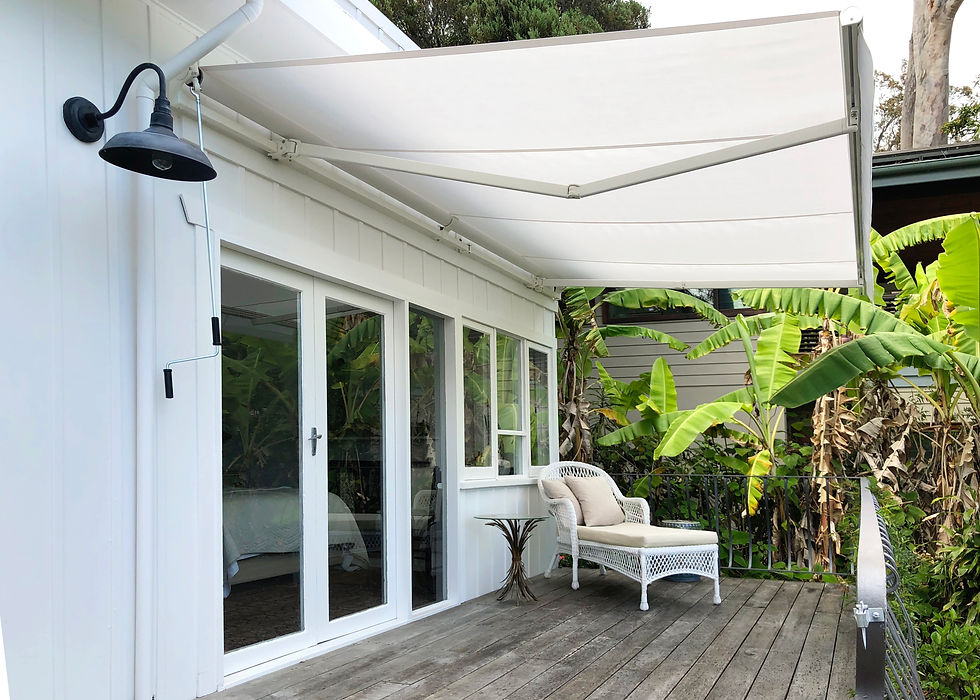How to care for your awning
- Shadeco Northern Beaches
- Aug 7, 2018
- 2 min read
Updated: Oct 18, 2022
Care & Maintenance of Awnings
To ensure the longest possible life from you awning, we recommend you follow these rules;
Operation & Care
1. DO NOT leave your awning out if you are not at home, or in windy conditions or if storms are approaching. No warranty covers wind and/or storm damage.
2. Ensure the fabric is thoroughly dry before rolling it away.
3. Close your awning in wet weather even if the fabric is wet. Only open your awning to dry the fabric when the weather improves.
Maintenance
To clean the fabric:
1. Keep the fabric clean by brushing it regularly, both inside & out with a soft brush. Hosing occasionally with clean, cold water on hot days will minimise the development of algae, mildew & fungus by removing dust and grime.

DO NOT allow dirt, leaf litter, bird droppings etc to remain on the fabric as this provides a perfect environment for bacteria to proliferate.
2. While hosing down the fabric, also wash the frame. Removal of salt residue in areas close to the ocean is essential (take care not to wet the cable & motor on motorised awnings).
3. To remove wet or embedded stains, sponge clean fabric with a damp cloth. Use diluted detergent with warm water, and avoid rubbing the stain. In all cases the cleaning process should be tested in an inconspicuous area first.
4. DO NOT wash the fabric with strong detergents or bleach. Most awning fabrics are impregnated with mould & water repelling agents, however under certain conditions, even these preventative agents can be rendered ineffective.
Keep insecticides, solvents and fuels away from fabric.
To clean the powder-coated surface:
The effects of ultra violet light, pollution, dirt, grime and salt deposits are detrimental to a powder-coated surface as they accumulate over time.
1. Carefully remove any loose deposits with a wet sponge.
2. Use a soft brush or cloth (non abrasive), and a diluted dish detergent remove other deposits. Do not use steel wool, scrapers, scouring liquids or powders as they will permanently scratch the coated surface.
3. Rinse off with clean water.
4. Apply a coating of ‘SILICON SPRAY’ to all frame joints and cables (WD40 is not suitable). This is particularly important in high corrosion areas near the ocean and should be performed frequently in coastal areas.




Comments